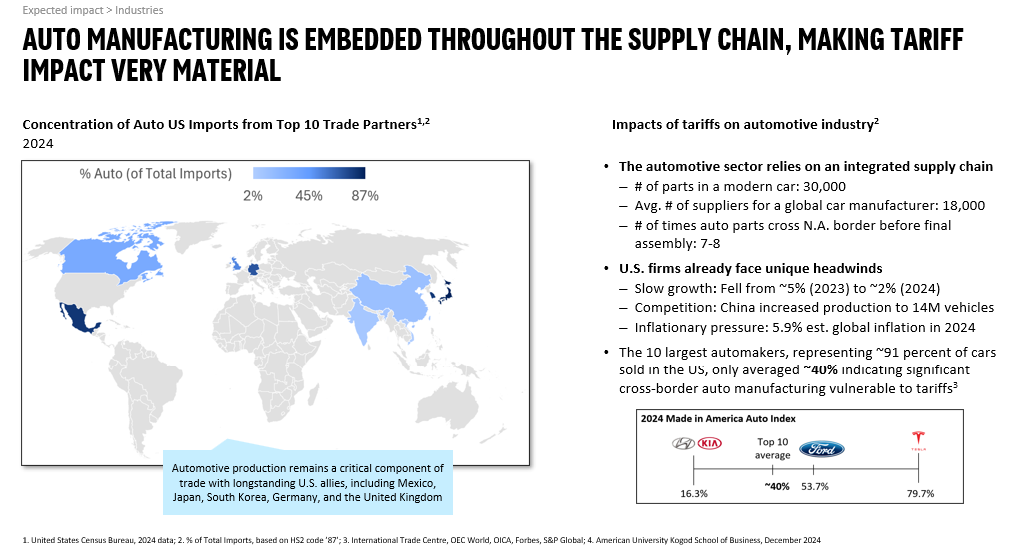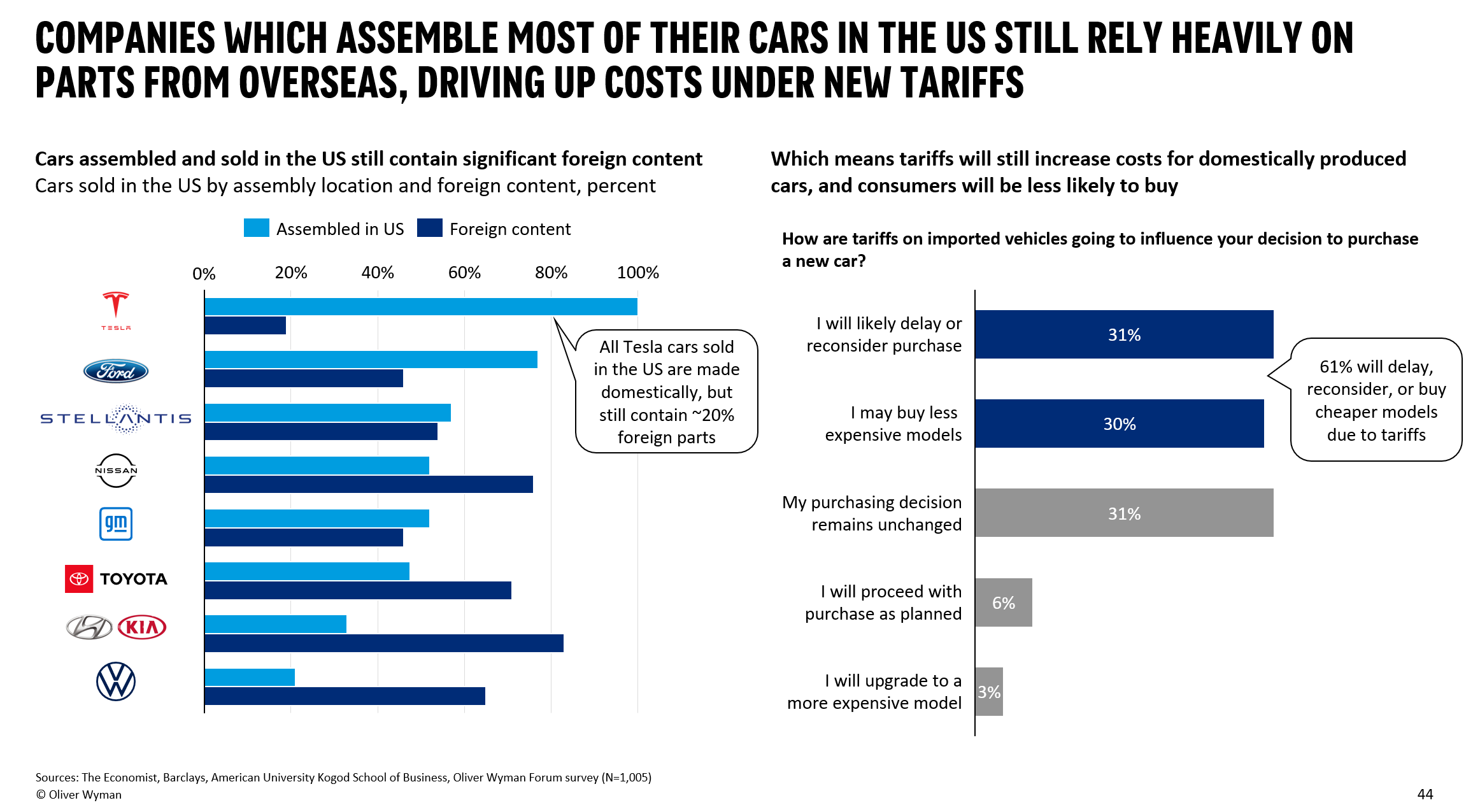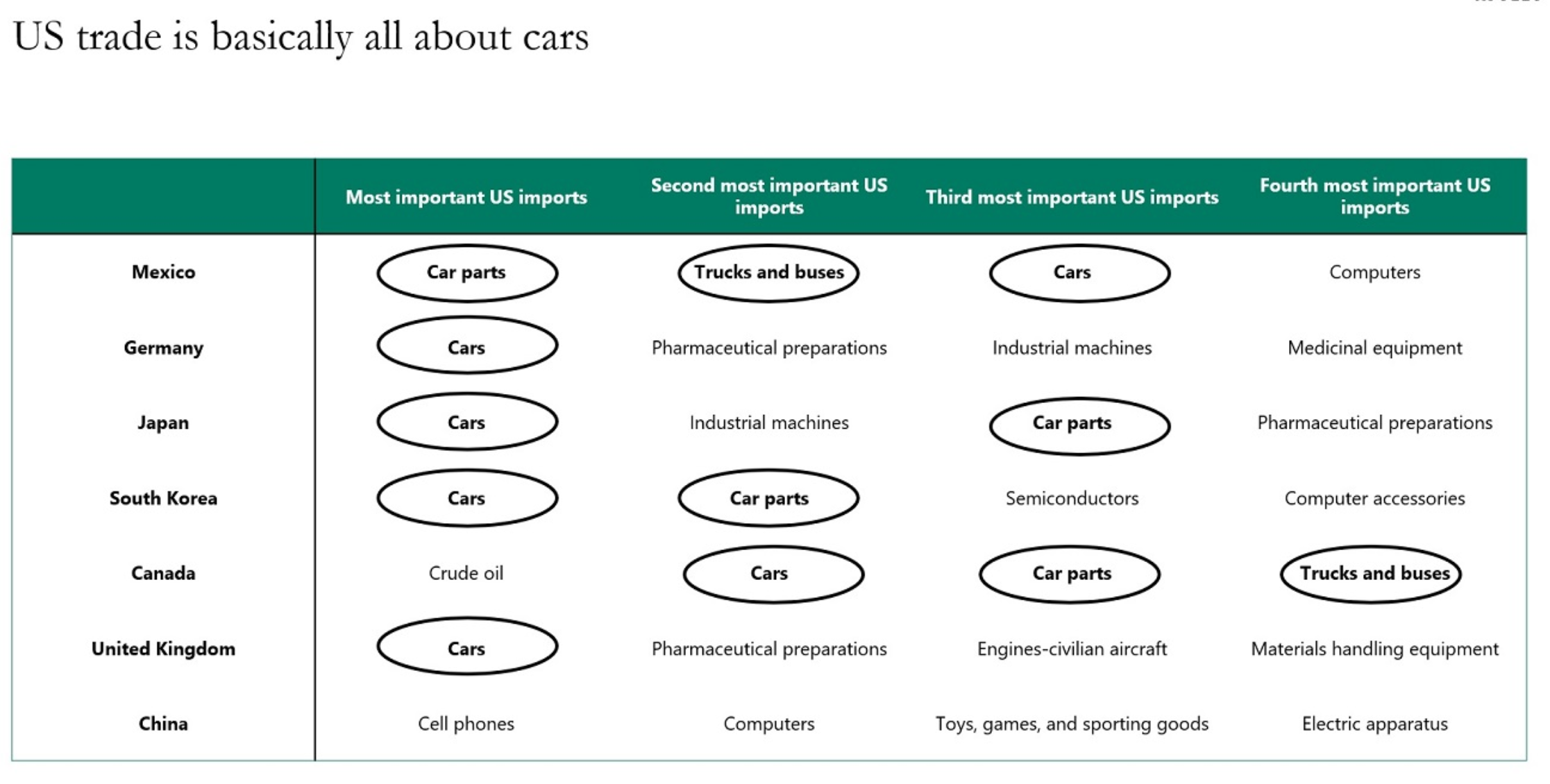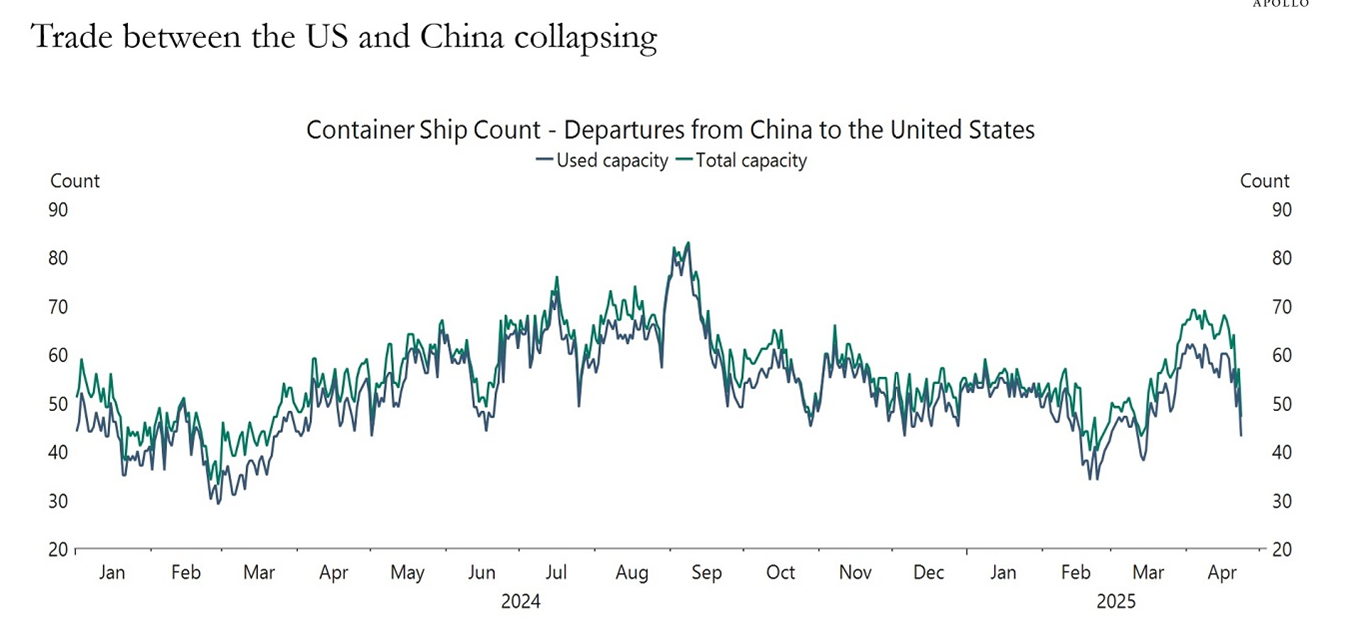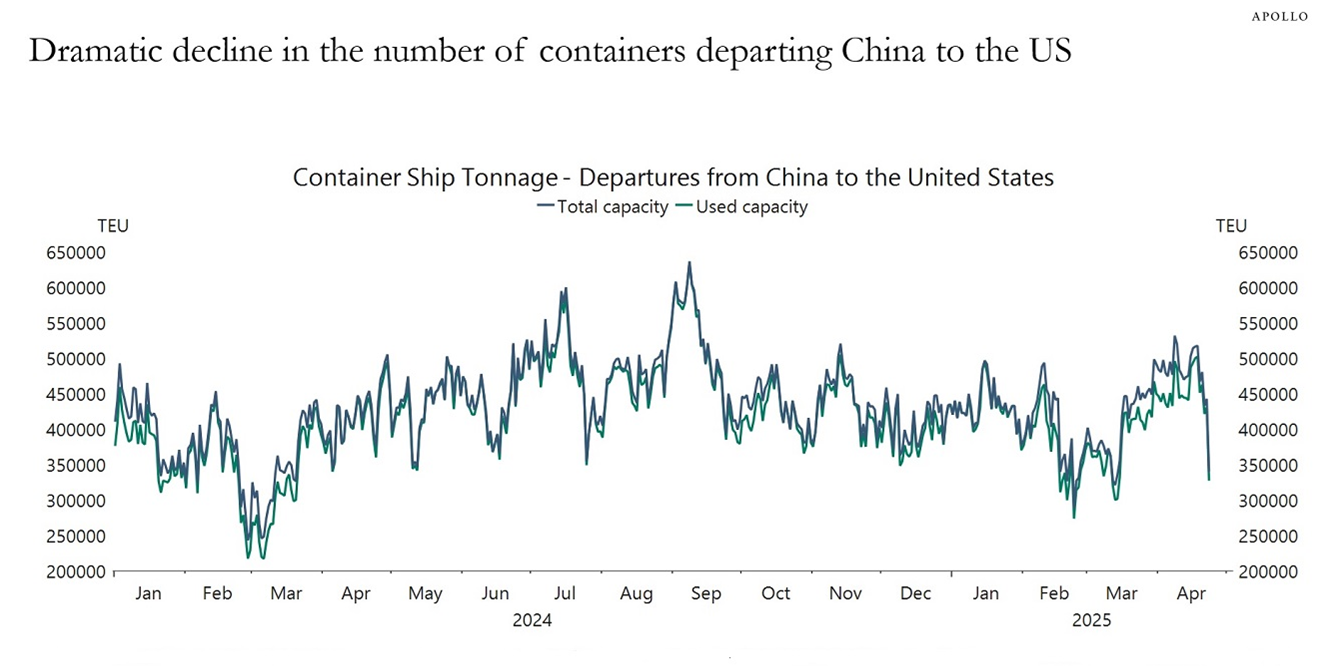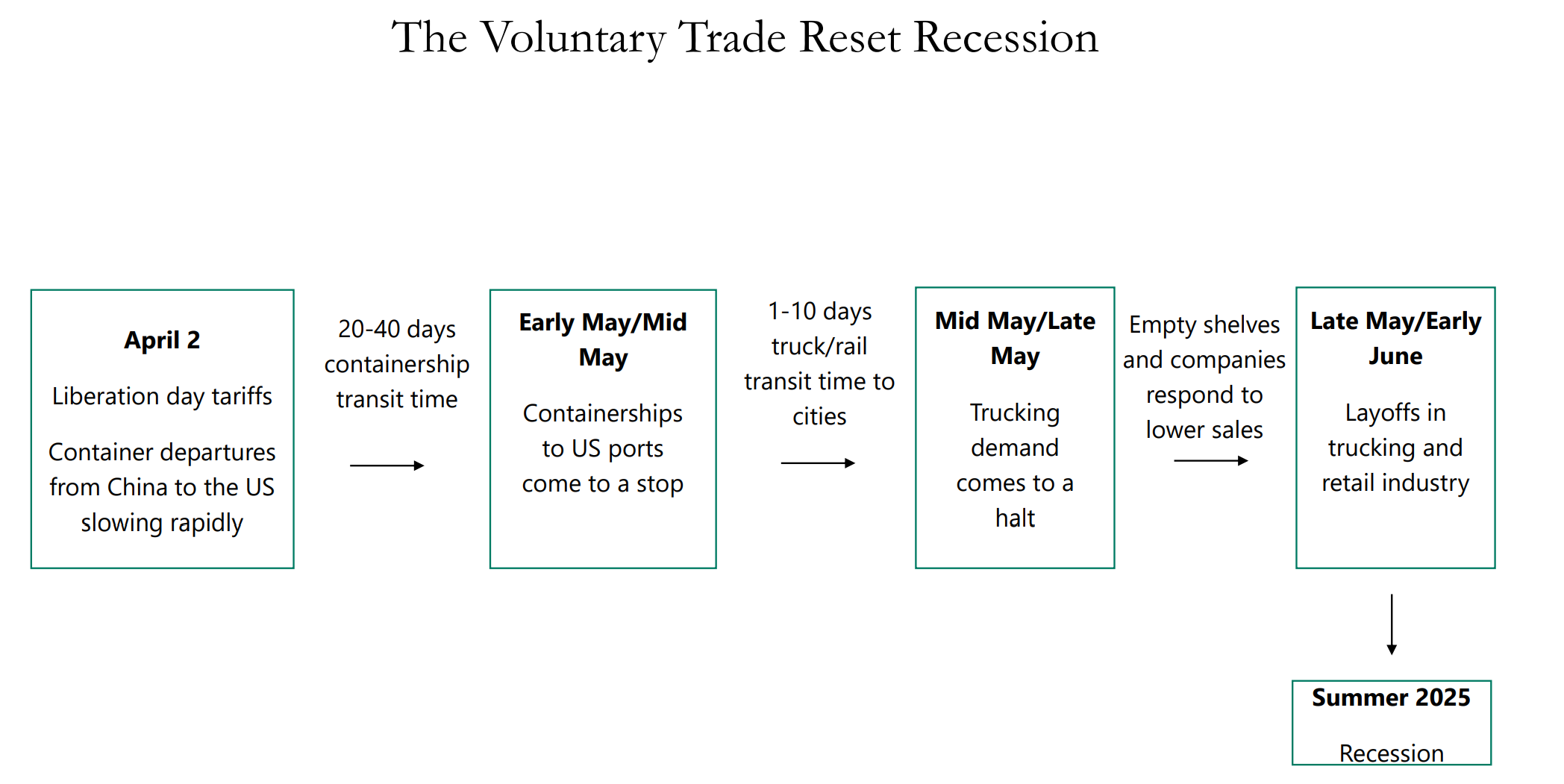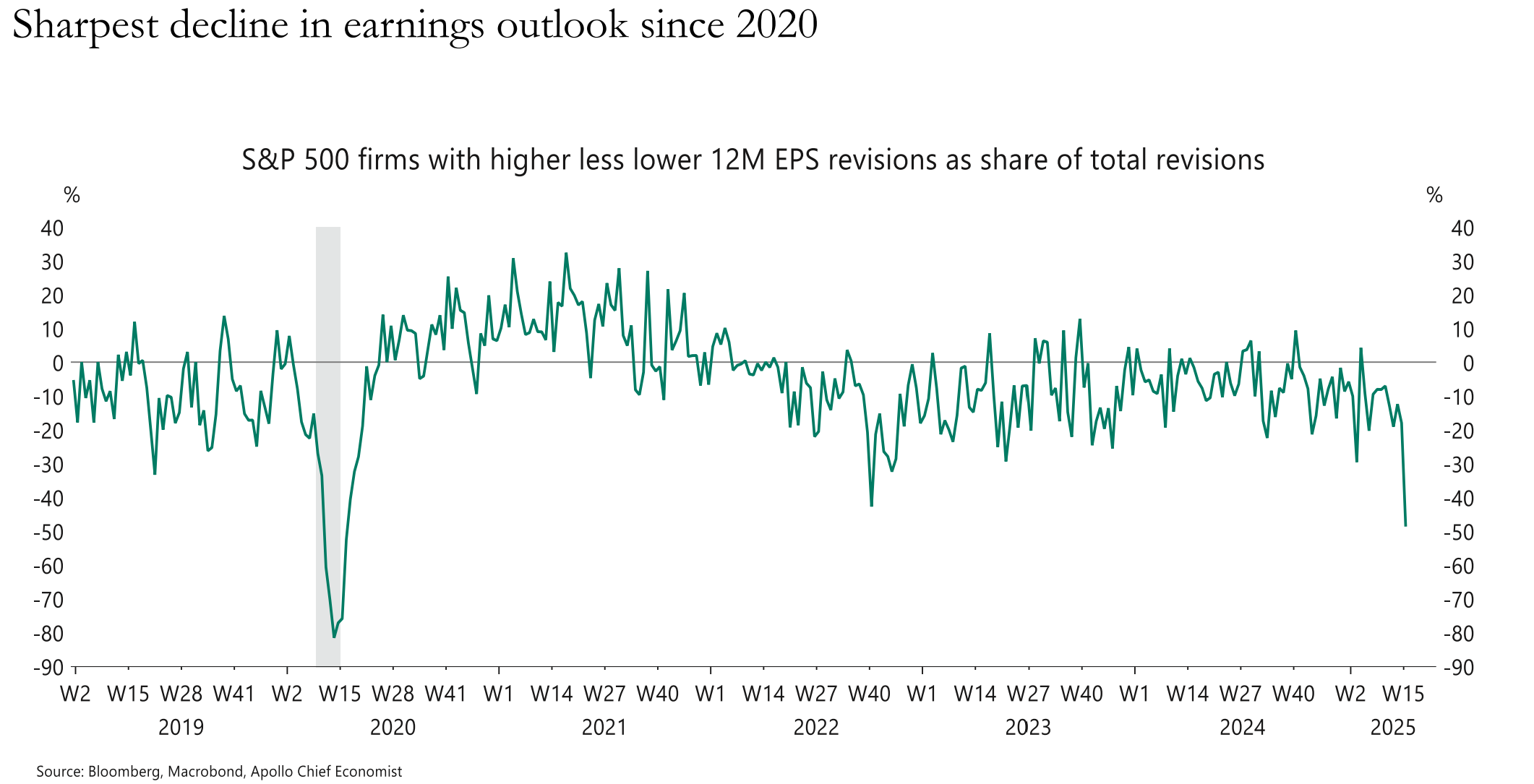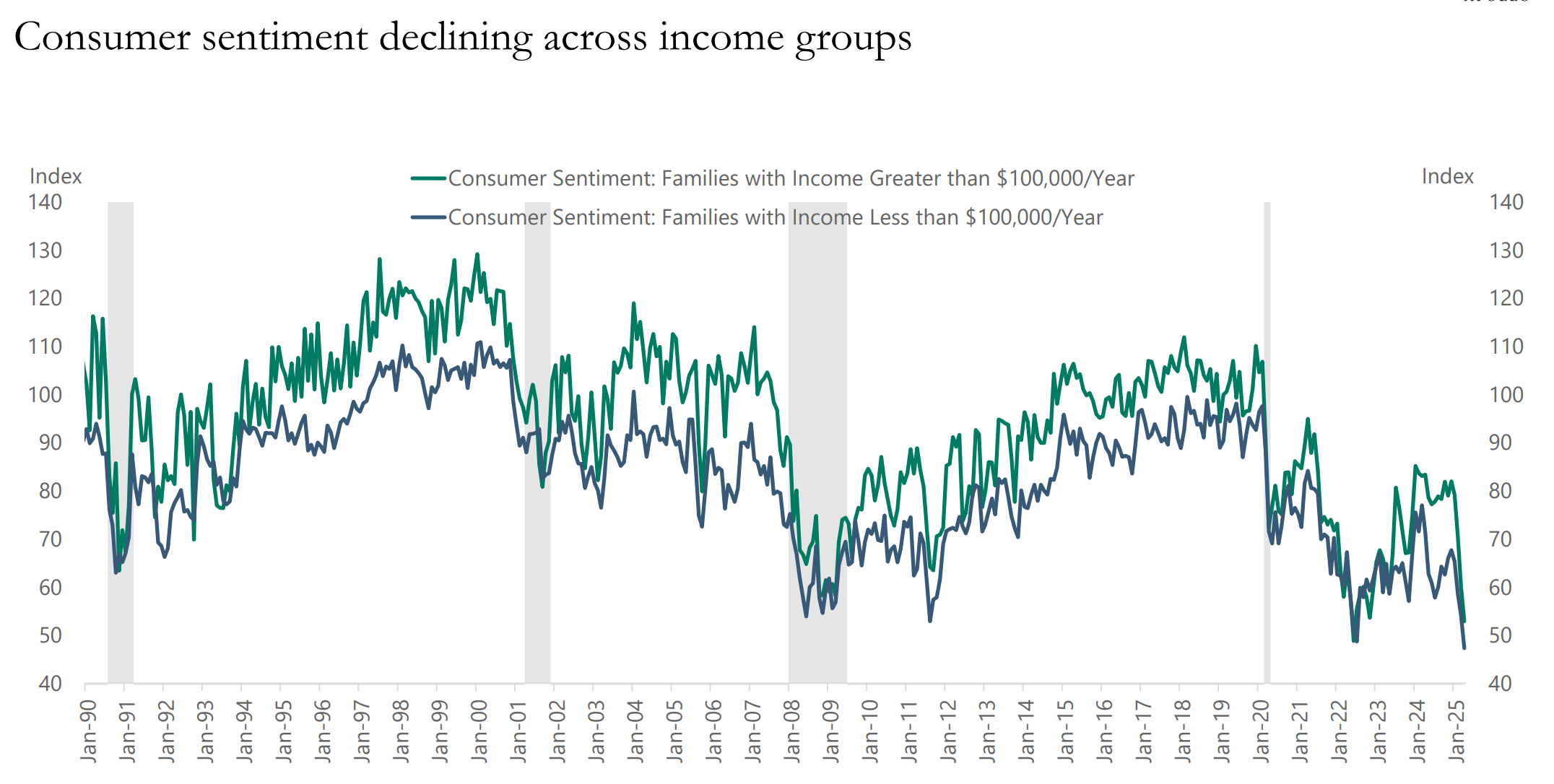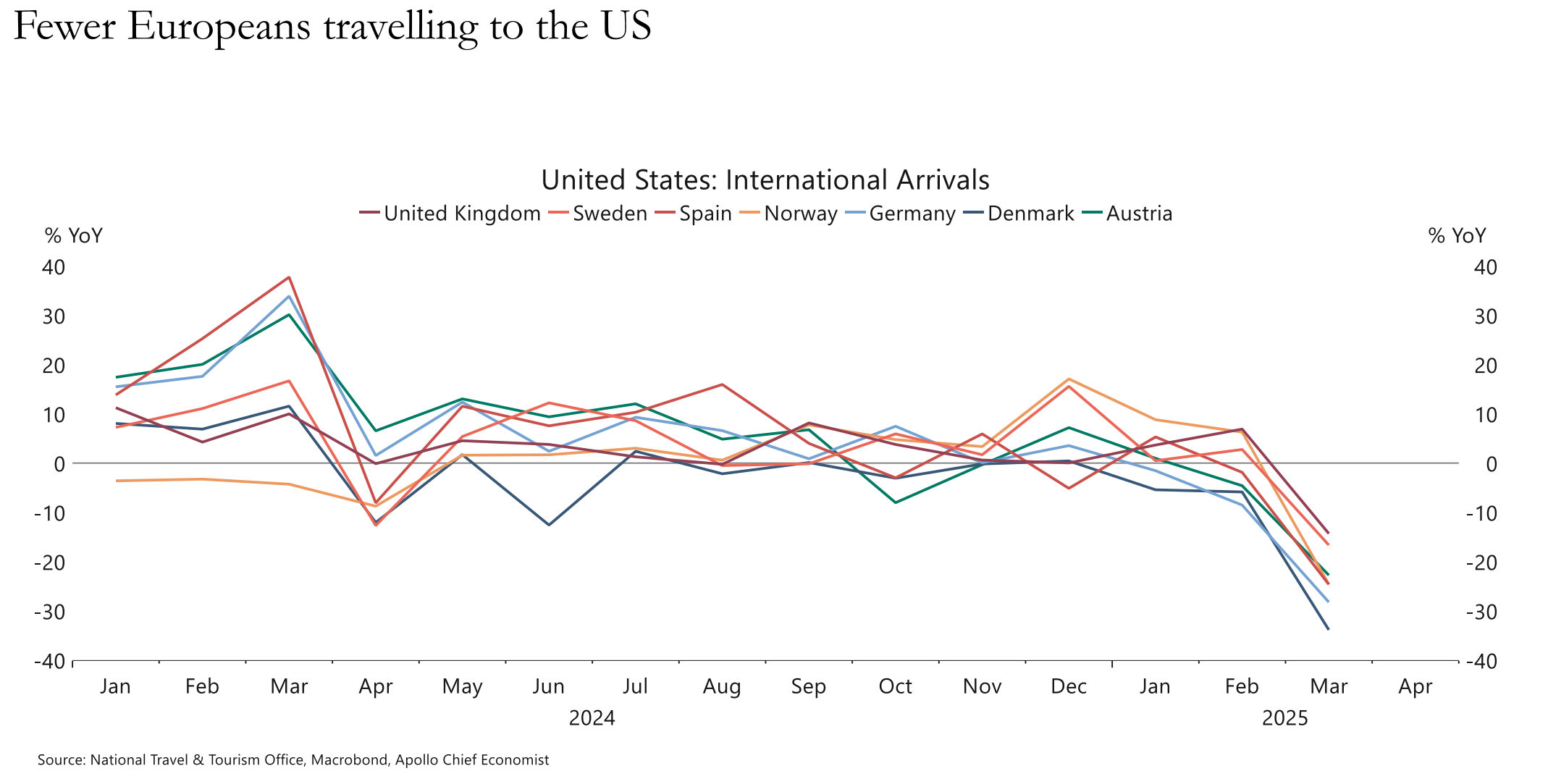Oliver Wyman Tariff Tearsheet - 30th April
-
Welcome to OW's Tariff Tearsheet, a twice weekly update that compiles the most insightful links and content, externally as well as that developed by Oliver Wyman
Today’s Tearsheet includes five highlighted insights from Oliver Wyman analysis, Apollo (Torsten Slok, Chief Economist), and Sinocism (Bill Bishop) focused on (1) the importance of the automotive sector in US trade negotiations, (2) the nosedive in China-US trade, (3) the cryptic tango of negotiations with China (“are they talking or not?”), and (4) the adverse responses of US consumers and firms to tariffs
Autos Play a Key Role in US Trade
Oliver Wyman Analysis, Apollo – 28th April 2025Central Role in Trade Agreements: Cars and car parts are pivotal in trade negotiations due to their significant economic impact and complex supply chains. As major contributors to GDP and employment, automotive industries influence bilateral and multilateral trade discussions
Key Considerations in Negotiations:
-
Tariff Implications: The automotive sector often faces high tariffs, making it a focal point in negotiations. Reducing or eliminating these tariffs can lead to substantial cost savings and increased competitiveness for manufacturers and exporters
-
Supply Chain Dependencies: The production of cars involves intricate supply chains that span multiple countries. Negotiations often address the seamless movement of parts and components across borders, aiming to reduce delays and costs associated with customs and regulatory compliance.
-
Environmental Standards: With increasing emphasis on sustainability, trade agreements frequently include discussions on environmental standards and regulations for automotive products. Aligning these standards can facilitate smoother trade relations and promote green technologies.
-
Technological Advancements: Innovations in electric vehicles (EVs) and autonomous driving technology are reshaping the automotive landscape. Trade negotiations may focus on intellectual property rights, research collaborations, and technology transfers to support the growth of these sectors.
Influence of Key Automotive Nations
-
Mexico: As a major hub for car manufacturing, Mexico plays a crucial role in North American trade agreements, leveraging its production capabilities and proximity to the US market
-
Japan and South Korea: Renowned for their automotive brands, these countries are vital players in trade discussions, often seeking favorable terms for exports while addressing import regulations and standards
-
Germany: Europe's automotive powerhouse, Germany's influence in trade negotiations is significant, particularly in the EU context, where it advocates for policies that support its expansive car industry
-
United Kingdom: Post-Brexit, the UK is actively negotiating trade deals with key partners, aiming to secure advantageous terms for its automotive sector amidst shifting regulatory landscapes
Trade Between China and the US Collapsing
Torsten Slok, Apollo, 25th April 2025)-
Declining Container Traffic: Daily container traffic from China to the US is sharply declining
-
Impending Shortages: This will likely lead to empty shelves in US stores within weeks, resembling Covid-era shortages for consumers and firms reliant on Chinese intermediate goods
-
Inflation Concerns: We will soon begin to see higher inflation because there are a significant number of product categories where China is the main provider of certain goods into the US market
-
Job Impact: May will see substantial layoffs in trucking, logistics, and retail sectors, notably affecting small businesses like independent toy, hardware, and men's clothing stores. With 9 million trucking-related jobs and 16 million retail workers, the economic risks are considerable
Chinese April Politburo meeting; Trade "struggle"; PRC tariff exemptions; Confusing talk of talks
Sinocism, 25th April 2025The Chinese Politburo held its April meeting on Friday, with the evolving tariff and economic situation at the forefront
-
Trade Talks Ambiguity: Mixed messages continue about U.S.-China trade talks. President Trump mentioned ongoing meetings, yet China's Ministry of Foreign Affairs denied any consultations. Despite official denials, there were sightings of Chinese officials at the U.S. Treasury, hinting at possible undisclosed discussions
-
Economic Concerns: The Politburo acknowledged increasing external pressures affecting China's economy but did not announce any new stimulus measures. Instead, they confirmed plans to ease monetary policy and accelerate fiscal initiatives without exceeding the deficit spending approved in March. They are prepared with reserve policy tools to counter U.S. tariffs, indicating readiness for further trade tensions
-
Tariff Exemptions: Reports suggest China is waiving certain retaliatory tariffs on U.S. imports, including some semiconductor products, while maintaining tariffs on others like memory chips. Refunds are being offered for tariffs paid on exempted items within a specific timeframe. Discussions are ongoing about suspending tariffs on other U.S. imports, such as medical equipment and industrial chemicals, due to economic pressures
-
International Perception: The nuanced language used in communications underscores China's focus on managing both domestic and international perceptions during ongoing trade tensions.
How Are US Consumers and Firms Responding to Tariffs?
Torsten Slok, Rajvi Shah, and Shruti Galwankar, Apollo, 25th April 2025How are firms responding to tariffs?
-
Decline in New Orders: Firms are experiencing a noticeable drop in new orders as tariffs disrupt established supply chains and increase costs. The uncertainty surrounding international trade policies has led businesses to adopt a cautious approach, impacting demand for goods and services
-
Reduction in Capital Expenditure Plans: Many companies are scaling back their capital expenditure (Capex) plans due to the financial strain imposed by tariffs. The increased costs and unpredictability of trade relations discourage investments in new projects, expansions, or technology upgrades, potentially stalling growth and innovation
-
Inventory Adjustments: Prior to the implementation of tariffs, firms were increasing their inventories in anticipation of trade disruptions. This stockpiling was a strategic move to mitigate potential shortages and price hikes. However, with tariffs now in effect, companies may face challenges in managing these inventories efficiently, considering fluctuating demand and the need to adapt to changing market conditions
-
Downward Revision of Earnings Expectations: As tariffs impact operational costs and market dynamics, firms are revising their earnings expectations downward. The added expenses from tariffs, combined with potential decreases in sales and profit margins, require businesses to adjust their financial forecasts. This revision reflects the anticipated impact on revenues and profitability, affecting investor confidence and stock valuations
How are consumers responding to tariffs?
-
Record-Low Consumer Confidence: Tariffs have driven consumer confidence to record-low levels due to concerns about rising prices and economic uncertainty. This wariness affects spending behaviors as consumers fear their purchasing power may diminish
-
Front-Loading Purchases: Many consumers accelerated purchases of goods, particularly electronics and appliances, before tariffs took effect to avoid anticipated price hikes. While this boosted sales temporarily, it may lead to reduced spending in the coming months
-
Slowing Tourism: The tourism sector is experiencing a decline, especially in international travel, as tariffs increase travel-related expenses like airfare and accommodations. Economic uncertainty and reduced discretionary income further discourage travel plans.
-
1/1

